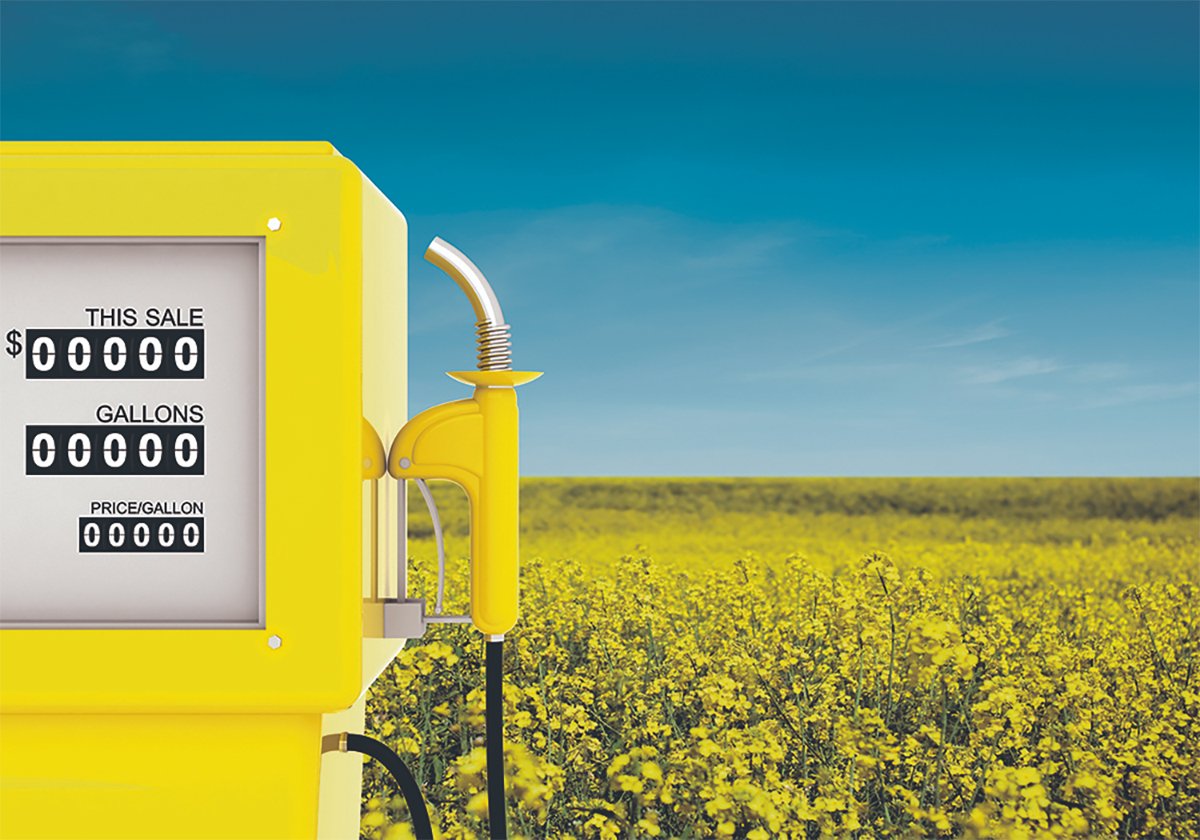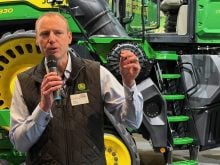A group of investors saw its hopes for profits in a Manitoba hog barn network dashed this winter when they walked away with pennies for each dollar invested.
The network was established in the Killarney, Man., area during the past three years. Within that network some interests owned the sow, nursery and finishing barns while other investors, also referred to as limited partners, owned the livestock and paid fees for the use of the barns.
There were two sow barns attached to nursery barns within the network, which was launched under the name Turtle Mountain Pork Partnership. Each sow barn was to supply stock for about 10 finishing barns, which were built mainly in the Killarney area.
Read Also

Biofuel sector happy with federal budget
Advanced Biofuels Canada says new Biofuel Production Incentive is a lifeline until CFR amendments are in place.
The network is capable of producing 150,000 finished hogs per year.
Now, the limited partners have accepted an offer from the Manitoba Pork Marketing Co-op to buy them out with an offer equivalent to five cents for each dollar invested.
The number of limited partners and the value of their original investment have not been disclosed.
Perry Mohr, chief executive officer for Manitoba Pork Marketing, cited timing as a reason for the financial losses suffered by the limited partners.
Hog producers last year were hit with a period of low prices for their animals, a problem compounded by high feed costs, largely due to drought in parts of Saskatchewan and Alberta.
Mohr suggested that the livestock component did not have enough money invested to see it through lean times. He also said the goals of those within the network were “not necessarily synchronized,” but would not elaborate.
There have been other transactions within the network this year as well.
An entity Mohr referred to as a “partner” bought full ownership of the sow barns this winter. Then, Manitoba Pork Marketing and the “partner” merged their interests in the sow barns and the livestock under an arrangement that sees the marketing co-op as the majority shareholder. That partner could be Crocus Investment Fund, a labour-sponsored investment firm that encourages development of small and medium-sized companies in Manitoba.
Bob Jones, Crocus Investment director of marketing, confirmed the fund has a stake in the sow barns and other aspects of the hog barn network but he would not elaborate on the extent of Crocus’s involvement.
The finishing barns are still owned by individuals, according to Mohr.
He said Manitoba Pork Marketing decided to get more involved in the hog barn network for a number of reasons.
“I guess being involved from the genesis, we felt a degree of ownership to this thing. Not only had we promoted it as a good investment, but many of our members were participating in it.”
There were also the optics to consider.
“If we had walked away from it completely, what kind of a message would we be giving hog producers, that they can’t make money at producing hogs in Manitoba?”
N.M. Paterson & Sons once had a stake in the hog barn network. However, Mohr said the Winnipeg-based grain handling company no longer has any ownership in the barns or the livestock.
Although there may be other hog barn enterprises in financial difficulty, he said it’s unlikely Manitoba Pork Marketing could intervene as it did in the Killarney venture.
“We’ve got our hands full with this one right now.”














